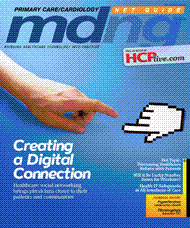Covering Your Assets: Loser Pays: How to Avoid Frivolous Lawsuits
What if our tort system required the losing side to pay for the winner's legal fees and costs?
Although there is widespread agreement that the direct and indirect costs of litigation and the threat of lawsuits are major contributors to spiraling healthcare costs, tort reform and other proposals to remedy the problem have been relatively minor components of the debate over healthcare reform.
In the US, medical malpractice cases and personal injury litigation are handled on a contingent fee basis. Plaintiffs and their lawyers enter into an agreement that sets the legal fee as a percentage of the amount of the ultimate recovery. Although the plaintiff and the defendant are each responsible for their own legal fees and costs, in practice it is the plaintiff’s attorney (not the plaintiff) who shoulders all of the expenses of the case--court filing fees, expert witnesses, depositions, etc--in exchange for a percentage of whatever damages are awarded. Thus, a plaintiff’s attorney in a malpractice case is really involved in a business deal, risking total costs against a potential payoff.
Does Negligence Matter?
This means that attorneys have incentives to take on cases even when it is unclear whether the defendant is actually liable. The key issues for attorneys are the amount of the potential recovery (which usually depends more on the amount of damages or injury to the plaintiff than on the physician’s degree of negligence) and the likelihood an award will be collectible from either an insurance company or the personal assets of the physician.
An attorney can “win” a case with uncertain liability because, if the injury to the plaintiff is serious enough, there is always the risk a jury will return a large damage award, which can help the plaintiff’s attorney to force a settlement. Potentially enormous damage awards and high defense costs can create a financial threat that the defense is unable or unwilling to withstand, regardless of liability.
The Plaintiff Holds all the Cards
There is a highly disproportionate degree of risk assumed by each side in a contingent fee case. If it looks like the costs of pursuing the case might go beyond what the plaintiff’s attorney is willing to invest, he can essentially “dump” the case, settling for less but avoiding a big financial toll. The plaintiff’s attorney controls his own costs and can manage the case with a view to properly balancing the risk/reward equation.
Defendants in a malpractice lawsuit have no similar ability to limit potential loss short of settling the case. Unless the plaintiff agrees, the defense can’t simply decide to drop the case as the costs pile up. If the plaintiff’s attorney is well financed and a strong negotiator, the plaintiff holds all the cards and can demand a high price for a settlement.
Balancing the Scales: Loser Pays
What if our tort system required the losing side to pay for the winner’s legal fees and costs? That’s how nearly every European country does it. Would that reduce the incentive to sue? Even with a contingent fee, a “loser pays” system would move the financial risk out of the plaintiff’s control—the defense’s risk of a jury damage award would be balanced by the financial risk and uncertainty assumed by the plaintiff. With “loser pays,” the two sides are more evenly matched: the defense is less likely to be forced into an unfavorable settlement, and the plaintiff can’t unilaterally dump the case to avoid financial risk. As their advantage is diminished, plaintiffs would be less likely to file cases for the settlement value without clear liability. With every filed case, the plaintiff’s lawyer would literally be betting the house on a successful outcome. Attorneys with poor skills and judgment would be weeded out of the profession in fairly short order.
The inherent economic advantage (controlled versus uncontrolled costs) currently enjoyed by plaintiffs, even in cases of marginal liability, inevitably leads to frivolous malpractice litigation. A “loser pays” system would dramatically reduce the number of cases brought to court, yet still enable those who are truly injured to find an attorney to finance a legitimate case. The costs and the emotional impact of frivolous cases might be substantially reduced if these reasonable reforms were considered as a part of any healthcare reform.
Robert J. Mintz, JD, is an attorney and the author of the book
To receive a complimentary copy of the book, call 800- 223-4291 or visit www.rjmintz.com.
Asset Protection for Physicians and High-Risk Business Owners.
